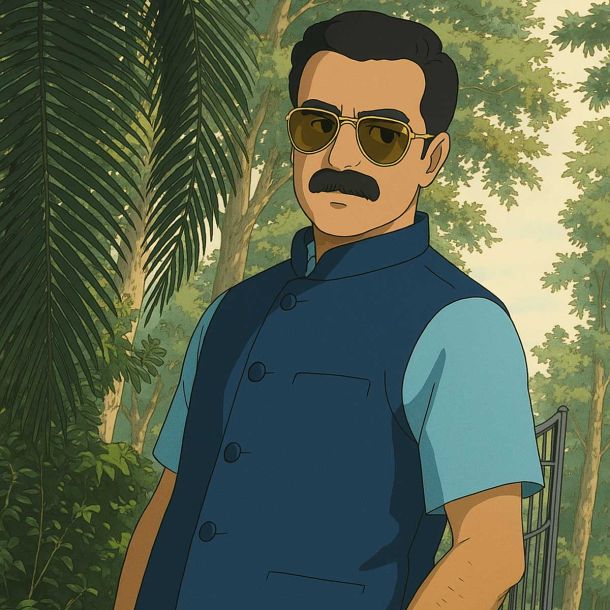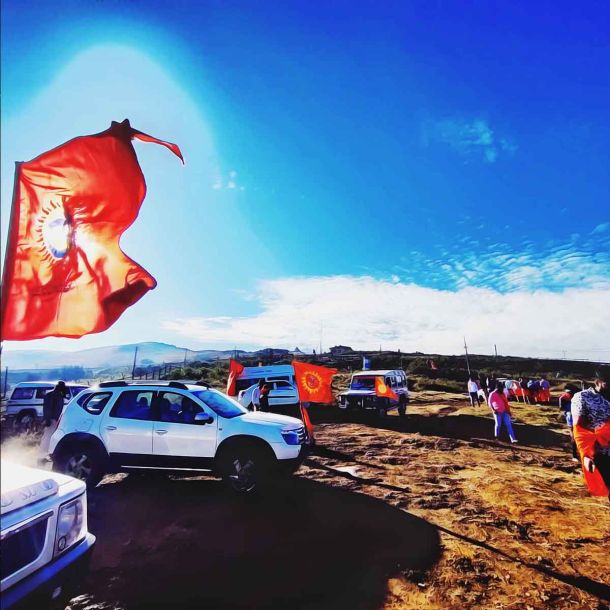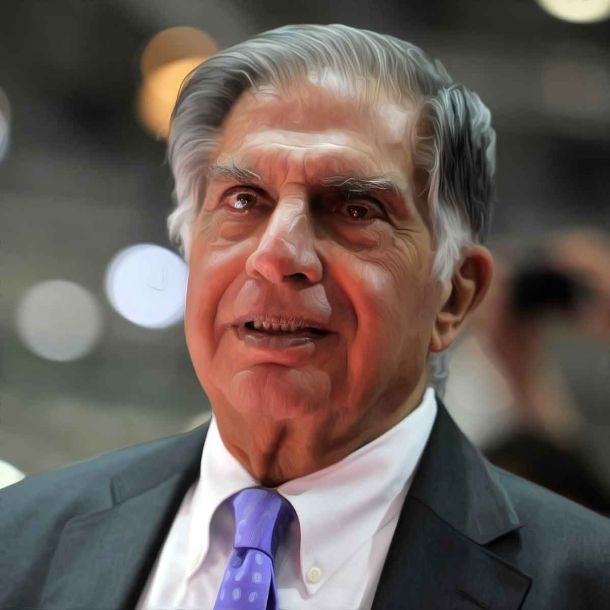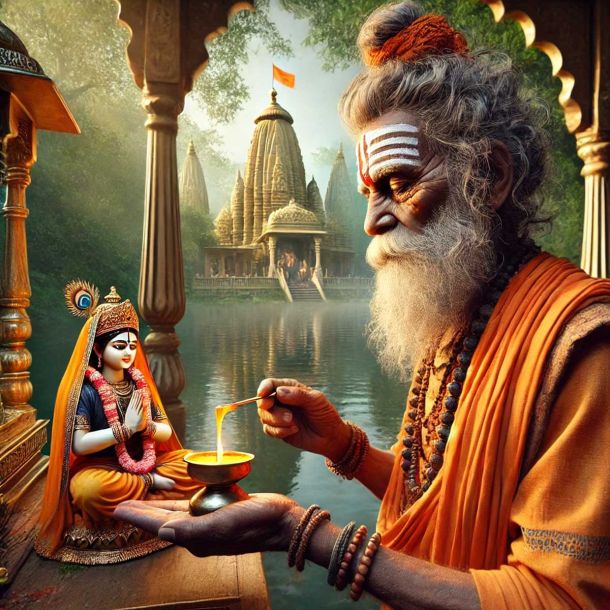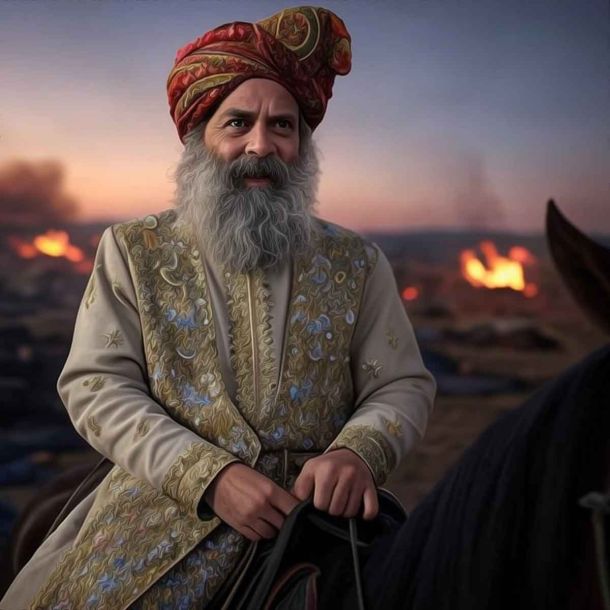More Coverage
Twitter Coverage
Satyaagrah
Written on
Satyaagrah
Written on
Satyaagrah
Written on
Satyaagrah
Written on
Satyaagrah
Written on
Join Satyaagrah Social Media
"Tied to the cannon and blown to pieces couldn't deter his loyalty to Ettayapuram King and his devotion to the motherland stood sturdy and unshaken": Veeran Azhagumuthu Kone, Tamil Warrior who rebelled against Britishers 100 years before 1857 war
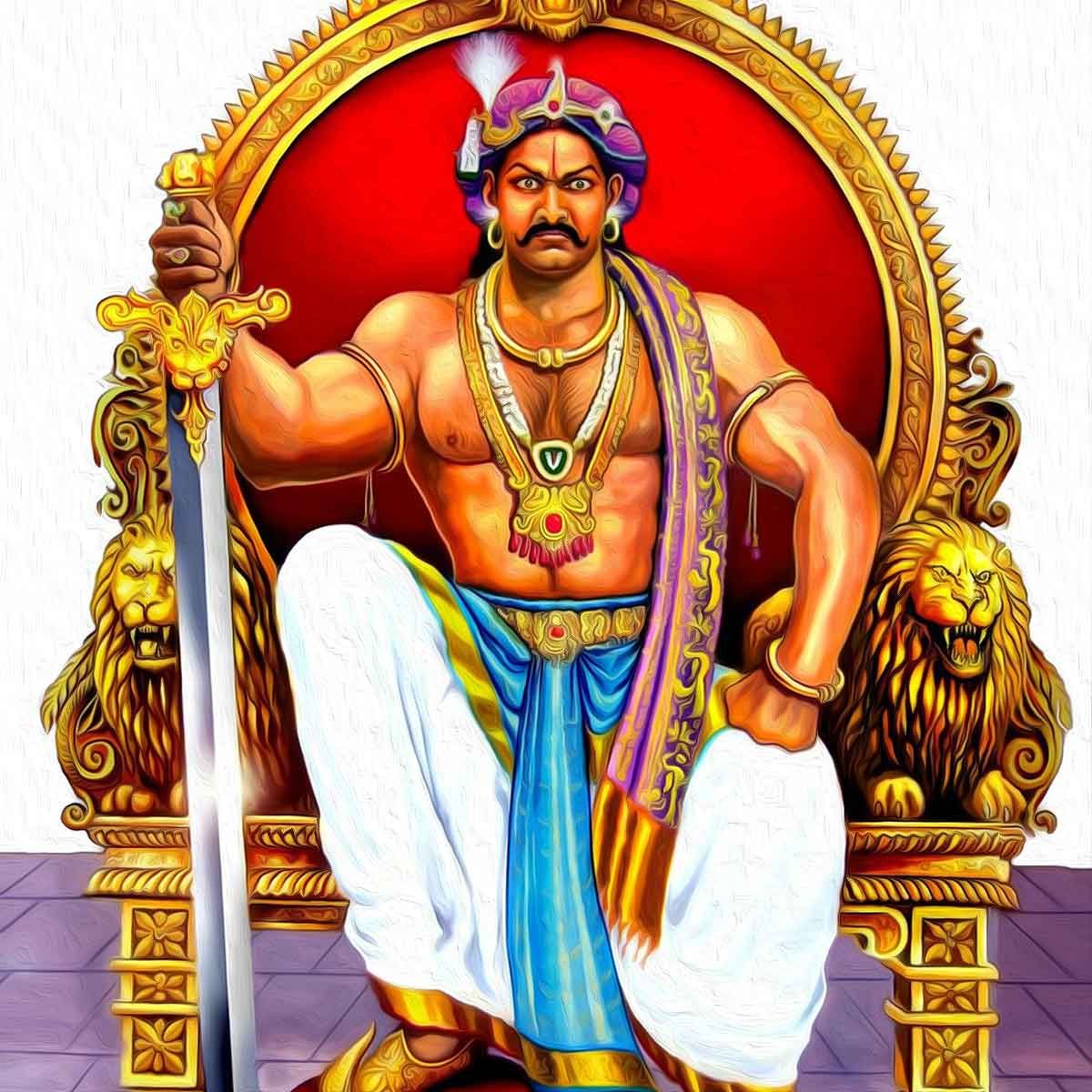
In the history of Bharat’s fight against British rule, Freedom Fighter Azhagumuthu Kone (1728 – 1757) may be called the first freedom fighter and martyr of Tamil Nadu who boldly opposed the rule of the foreigners and vehemently denied subjugation to the British orders by refusing to pay any tax.
|
Even as he was tied to the cannon and blown to pieces by the cannonball, his loyalty to the Ettayapuram King and his devotion to the motherland stood sturdy and unshaken – the true spirit of a nationalist leader.
Not many sources are available regarding this freedom fighter but folklores continued to sing his fame across centuries which motivated historians in the past few decades to search for sources that give more facts about this less known, unsung warrior of the Indian Peninsula and record his valour, loyalty, and patriotism.
|
The Political Backdrop
Freedom Fighter Alagumuthu Kone’s forefathers were the ancient residents of Aayarpaadi and Vanagapadi situated on the banks of the Palar River. Several of his ancestors served as guards, soldiers, and commanders in the army of the Chola kings.
Freedom fighter Alagumuthu was born to Kattalankulam Chieftain Periya Alagumuthu and Alagu Muthammal in 1728 at Kattalankulam. Kattalankulam is currently situated 17 km Southwest of Kovilpatti and it comes under the jurisdiction of Kovilpatti Taluk of the Thoothukudi district. His grandfather was Servaikarar Alagumuthu Kone who ruled between 1691 and 1725 and became a martyr in the Palangkottai battle.
Freedom fighter Alagumuthu’s father died in the Hanumanthakudi battle in 1750. Soon, in the same year, at the age of 22, freedom fighter Alagumuthu became the King of Kattalankulam. His paternal uncle Chinna Alagumuthu was his aide.
On 26th August 1751, Robert Clive headed an army of 500 soldiers and went from Chennai to Arcot and captured Arcot.
Due to the frequent wars between French and English, the British funds deteriorated. As a result, they decided to collect taxes. In this effort, in order to collect tax from Arcot Nawab and his Palayankarars (polygars), the East India Company sent a troop of 500 European soldiers, 2000 native soldiers headed by Khan Sahib, and Arcot Nawab Muhammed Ali’s brother Mabus Khan under the commandership of Colonel Alexander Heron.
This troop left from Trichy towards South in February 1755. When the troop arrived at Dindigul, Dindigul Lakshmana Nayakar gave the amount asked by Heron and bowed before him. Ramanathapuram Senapathy gave two ports to the English and surrendered. Likewise, several chieftains submitted to the demands of the British.
By 1750, the British East India Company had established its control over Tamil Nadu. The Arcot Nawab who was bankrupt in debt had to hand over the right to collect taxes to the British in return for a loan. In 1755, the Company started directly collecting the taxes from the Palayakarars (Polygars) of the Tirunelveli region. Khan Sahib was appointed by the English as the Commander of Madurai and Tirunelveli areas to collect taxes from the Palayakarars of these regions. They sent notice to Ettayapuram also asking to pay the taxes.
In 1755, Ettayapuram was ruled by Jagaveeraraam Ettappa Naickar. At the same time, Bhoothalaipuram in the Southeast of Ettayapuram was ruled by Bhoothalaipuram Ettaya. On the other side, the Kurumalai part of Ettayapuram was ruled by yet another relative of the Ettayapuram King, Kurumalai Durai. All three of them were called ‘Ettappan‘ by the people and they ruled Etayapuram.
When the Ettayapuram king received the notice from the British asking him to pay the taxes, he had a discussion with one man – Azhagumuthu Kone.
|
The making of a Warrior
Alagumuthu did not accept it. He argued with the Ettayapuram King saying, “Why should we pay taxes to immigrants?” Alagumuthu refused to pay the taxes to the English. Ettayapuram King also accepted the feelings and logic of Alagumuthu and refused to pay the tax.
Consequetively, Colonel Heron and Khan Sahib who were camping at Ellainayakanpatti, on the advice of Kovilpatti Vaithiyalinga Mudhaliyar, came to Ettayapuram to collect taxes. Now, stationed at the Eastern gate of the Ettayapuram Fort, they informed Jagaveeraraam Ettayappar of their purpose of coming. The Ettappa King refused to pay tax.
Seeing an opportunity, Bhoothalaipuram Ettaya told Khan Sahib that if he (Khan Sahib) made him the King of Ettayapuram, he would pay the taxes.
The English artillery attacked the Ettayapuram Fort. Hearing this, freedom fighter Alagumuthu Kone came with his army and fought fiercely against Khan Sahib’s troops. The British army destroyed the temple of Lord Shiva and the Poosai Mandabam in the East. When they were going to destroy the Perumal temple, Alagumuthu’s warriors headed by his paternal uncle Chinna Alagumuthu prevented them. Chinna Alagumuthu was shot dead by hidden soldiers of the enemy’s troop.
Meanwhile, as the defender of the Ettayappa King, Alagumuthu continued fighting at the Melvasal – the main entrance against the British force. When he heard that the Company’s army is gaining control over the Fort, Alagumuthu secretly rescued Jagaveera Ettappa Naickar and his warriors from the South gate and sent them to a safe abode at Perunaalikadu.
Khan Sahib captured Ettayapuram. In April 1755, he declared Bhoothalaipuram Ettaya the King of Ettayapuram. He collected the tax amount from the newly crowned king and left Ettayapuram for Tirunelveli with the war prisoners.
Bhoothalaipuram Ettaya, in due course of time, could not pay the tax. Seeing the circumstance, Kurumalai Durai, who wanted to become the king of Ettayapuram, expressed his wish to Khan Sahib’s friend Vembathoor Siva Shankaran Pillai.
In April 1756, Khan Sahib and Mabus Khan met at Kayathar and went to Ettayapuram on their way to Thiruviliputhur. At Ettayapuram, seeing the inability of Bhoothalaipuram Ettaya to pay taxes and keeping in consideration the eye of Kurumali Durai on the Ettayapuram throne, Khan Sahib arrested Bhoothalaipuram Ettaya and made Kurumalai Durai the King of Ettayapuram. Kurumalai Durai paid the tax amount of Rs.18,700/- to the British and Khan Sahib left from Ettayapuram.
Hearing that Kurumalai Durai had paid tax to Khan Sahib, Alagumuthu got angry. At Perunaalikadu, Jagaveeraraam Ettayappa Naickar died of sorrow that his brother Kurumalai Durai had also betrayed him. Immediately, Alagumuthu handed over the Sword to Venkateshwara Ettayappar, son of Jagaveeraraam Ettayappa Naickar, and crowned him the King. Since then, even today, Alagumuthu Kone’s heirs are honoured by the descendants of Venkateshwara Ettayappar in the festivals of Ettayapuram Samasthanam.
When Khan Sahib came to know about the crowing of Venkateshwara Ettayappar, he felt highly insulted and got angry with Alagumuthu Kone.
In order to retrieve Ettayapuram Fort, Alagumuthu began to gather the army. He summoned warriors of the Bethanayakanoor region, trained them, and merged them with his army. He thus created a huge army. He divided it into two divisions. One troop was led by Venkateshwara Ettayappar and the other army was led by Alagumuthu Kone himself. Both of them left with their respective armies in two different directions towards the Ettayapuram Fort.
The troop led by Alagumuthu Kone halted at night at the Bethanayakanoor Fort to take a rest. Having spied this, Siva Shankaran Pillai informed Khan Sahib and told him that it is the right time to attack them. He also incited Khan Sahib that if he does not destroy Alagumuthu, not only will Ettayapuram be taken away from the hands of the English but also will give the guts to the other Palayakarars who will also start rebelling against the payment of taxes. He added further that in order to revolt against Khan Sahib’s power, Alagumuthu may gather all others.
Realizing the threat due to Alagumuthu and the insult he cast to Khan Sahib by crowning Venkateshwara Ettayappar, Khan Sahib decided to assault Alagumuthu’s army that night itself. Khan Sahib surrounded the Bethanayakanoor Fort and suddenly attacked Alagumuthu’s soldiers who were deep in sleep. Unable to respond to the sudden attack, several warriors of Alagumuthu were killed and 255 others including Alagumuthu were held captives.
Khan Sahib asked the captives – Alagumuthu and his warriors, the whereabouts of Ettayapuram King. He asked them to beg pardon and agree to pay the taxes. But, none of the 255 captives agreed to bow before Khan Sahib. Instead, Alagumuthu Kone roared saying, “In order to safeguard the honour of our Motherland, we are ready to accept death“. Alagumuthu’s this patriotic conviction and fierce determination made Khan Sahib tremble. Hence, Khan Sahib caused severe torture on Alagumuthu Kone and his captive warriors.
As a punishment for not obeying the orders of the British, Khan Sahib cut the right hand of 248 of the captive soldiers. The remaining seven of them – Alagumuthu Kone, Kechilanan Servai, Venkateswara Rettu Servai, Muthalagu Servai, Parivaram Muthirulan, his brother Segaveera Rettulakshmanan, and Thalaikattupuram Mayilupillai were tied to the mouth of the cannon and shot. This brutal atrocity happened between midnight of Friday and early dawn of Saturday on 18th November 1757.
Alagumuthu Kone had sown the seed for Indian Independence against the British rule in Tamil Nadu soil 100 years before the First War of Indian Independence – the Sepoy Mutiny of 1857 was fought.
On 26th December 2015, the Government of India released a postal stamp as a tribute to freedom fighter Martyr Alagumuthu Kone.
|
References:
- Servaikarar Subash S.P.S, “Kattalankulam Servaikarar Alagumuthukone,” 2009
- Pillai K.K., “South India and Srilanka,” 1958
- Ganapathy Pillai W.E., “Etaiyapuram – Past, and Present,” 1890
- “Yadhavar Sigaram,” July 2015, Vol.-01:Issue-01
- Dr.M.Vijaya is an Academician, Author, Columnist, and Social Worker. She has rendered almost 30 years of services to the welfare and upliftment of society through her selfless social services and Human Rights awareness campaigns
 Support Us
Support Us
Satyagraha was born from the heart of our land, with an undying aim to unveil the true essence of Bharat. It seeks to illuminate the hidden tales of our valiant freedom fighters and the rich chronicles that haven't yet sung their complete melody in the mainstream.
While platforms like NDTV and 'The Wire' effortlessly garner funds under the banner of safeguarding democracy, we at Satyagraha walk a different path. Our strength and resonance come from you. In this journey to weave a stronger Bharat, every little contribution amplifies our voice. Let's come together, contribute as you can, and champion the true spirit of our nation.
 |  |  |
| ICICI Bank of Satyaagrah | Razorpay Bank of Satyaagrah | PayPal Bank of Satyaagrah - For International Payments |
If all above doesn't work, then try the LINK below:
Please share the article on other platforms
DISCLAIMER: The author is solely responsible for the views expressed in this article. The author carries the responsibility for citing and/or licensing of images utilized within the text. The website also frequently uses non-commercial images for representational purposes only in line with the article. We are not responsible for the authenticity of such images. If some images have a copyright issue, we request the person/entity to contact us at This email address is being protected from spambots. You need JavaScript enabled to view it. and we will take the necessary actions to resolve the issue.
Related Articles
- Tirot Singh: An Unsung Hero of the Khasi Tribe who destroyed British with his skill at Guerrilla Warfare
- Rani Chennamma of Keladi who fought bravely against Mughals and gave shelter to Shivaji’s son Rajaram, killed more than half of the forces of Aurangzeb's son Azamath Ara
- "समुद्रातळ शिवाजी": Behold mighty Kanhoji Angre, born 1669 in Harne, a fearless Maratha Navy hero ruling the Arabian Sea from Surat to Konkan with 80 ships, smashing British, Dutch, and Portuguese foes for 40 years, fortifying Vijayadurg and Alibag
- Santi Ghosh and Suniti Choudhury: Two Teenage Freedom Fighters Assassinated British Magistrate
- "Heroes are ordinary people that have achieved extraordinary things in life”: Samadhi of Hemachandra Vikramaditya, the last Hindu king to sit throne of Delhi, one of India's best military generals, achieving victory spree in 22 battles converted to Dargah
- “Everything you’ve ever wanted is on the other side of fear”: Mula Gabharu, one among phenomenal patriotic women who fought with Mughals for her husband, for motherland, called the people of Assam to fight Mughals by taking Ahom sword in their hands
- British author Tunku Varadarajan tried to tarnish the image of iconic freedom fighter Netaji with reference to Hitler: Sinister agenda to malign the legacy of Netaji from calling him a ‘flawed hero’ to a ‘Nazi sympathiser’
- "The nation which forgets its defenders will be itself forgotten": Asilatha Godse, also known as Himani Savarkar was the daughter of Gopal Godse and niece of Nathuram Godse who preserved every book of Savarkar when the Congress was destroying his work
- “Mostly unknown but the greatest Indian Revolutionary”: Rash Behari Bose, Neta of Netaji Subhash Chnadra Bose, most progressive revolutionary who prepared all the field and ammunition for Bose to carry out the biggest revolution against Britishers
- Our first true war of independence lie forgotten within the fog of time and tomes of propaganda: Sanyasi Rebellion, when "renouncers of the material world" lead peasants in revolt against British and fundamentalist islamic clans
- Godse's speech and analysis of fanaticism of Gandhi: Hindus should never be angry against Muslims
- Vinayak Damodar Savarkar – A Misunderstood Legacy
- A Great man Beyond Criticism - Martyrdom of Shaheed Bhagat Singh (Some Hidden Facts)
- "Victory are reserved for those warriors who are willing to pay it's price": One of the greatest and undefeated General Zorawar Singh conquered Laddakh, Tibbat,Gilgit, Skardu, Baltistan and defeated army of Imperial Chinese Tibetans in Dogra-Tibetan War
- Khudiram Bose - The symbol of valiance and death-defying youth, an orphan at 7 to hanging by the British at 18
